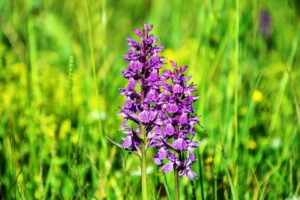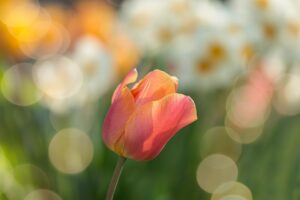Tiffany Flowers had always been fascinated by the beauty of nature. From a young age, she would spend hours in her grandmother’s garden, watching the flowers bloom and the butterflies flutter by. This love for nature only grew stronger as she got older, and she eventually decided to pursue a career in botany.
After graduating from college with a degree in biology, Tiffany landed a job at a local botanical garden. Here, she had the opportunity to work with a wide variety of plants and flowers, honing her skills as a botanist. She quickly became known for her expertise in identifying plants and her passion for conservation.
One day, while exploring a remote area of the garden, Tiffany stumbled upon a rare and endangered species of flower. She was elated by the discovery and immediately set to work studying and documenting the plant. Her research caught the attention of a prominent botanical magazine, which featured her findings in a special issue.
Tiffany’s work soon gained recognition in the scientific community, and she was invited to present her research at a prestigious botanical conference. Her presentation was met with acclaim, and she was offered a position at a renowned research institute. Excited by the opportunity to further her work in conservation, Tiffany accepted the offer.
At the research institute, Tiffany had access to state-of-the-art facilities and a team of dedicated scientists. Together, they embarked on a mission to study and protect endangered plant species around the world. Tiffany’s expertise in conservation and her passion for nature made her a valuable asset to the team, and she quickly rose through the ranks.
As Tiffany’s reputation grew, so did her influence in the field of botany. She became a sought-after speaker at conferences and seminars, where she shared her knowledge and inspired others to join the fight to protect the planet’s biodiversity. Tiffany’s work was recognized with numerous awards and accolades, solidifying her status as a leading figure in the field.
Despite her busy schedule, Tiffany always made time to explore the natural world around her. She would often go on hiking trips to remote locations, where she would marvel at the beauty of untouched landscapes. These experiences fueled her passion for conservation and served as a reminder of the importance of protecting the environment for future generations.
In addition to her work in conservation, Tiffany was also an avid gardener. She cultivated her own garden at home, filled with a colorful array of flowers and plants. Her garden became a sanctuary where she could relax and unwind after a long day of research and fieldwork.
Tiffany’s love for nature extended beyond her professional life. She was actively involved in local environmental groups and volunteered at community clean-up events. She believed that everyone had a responsibility to protect the planet and worked tirelessly to spread awareness about environmental issues.
As Tiffany’s career continued to flourish, she never lost sight of her roots. She remained humble and grateful for the opportunities that had come her way, always remembering the lessons she had learned from her grandmother’s garden. Tiffany knew that she had found her calling in botany, and she was determined to make a difference in the world through her work.
With each new discovery and research project, Tiffany felt a sense of fulfillment that only deepened her passion for conservation. She knew that there was still much work to be done to protect the planet’s biodiversity, but she was determined to continue fighting for a greener, more sustainable future.
As Tiffany Flowers looked out at the vast expanse of wildflowers blooming in the meadow, she felt a sense of peace and purpose. This was where she belonged, surrounded by the beauty of the natural world that had always inspired her. And as she continued her work in conservation, Tiffany knew that she was making a difference – one flower at a time.























